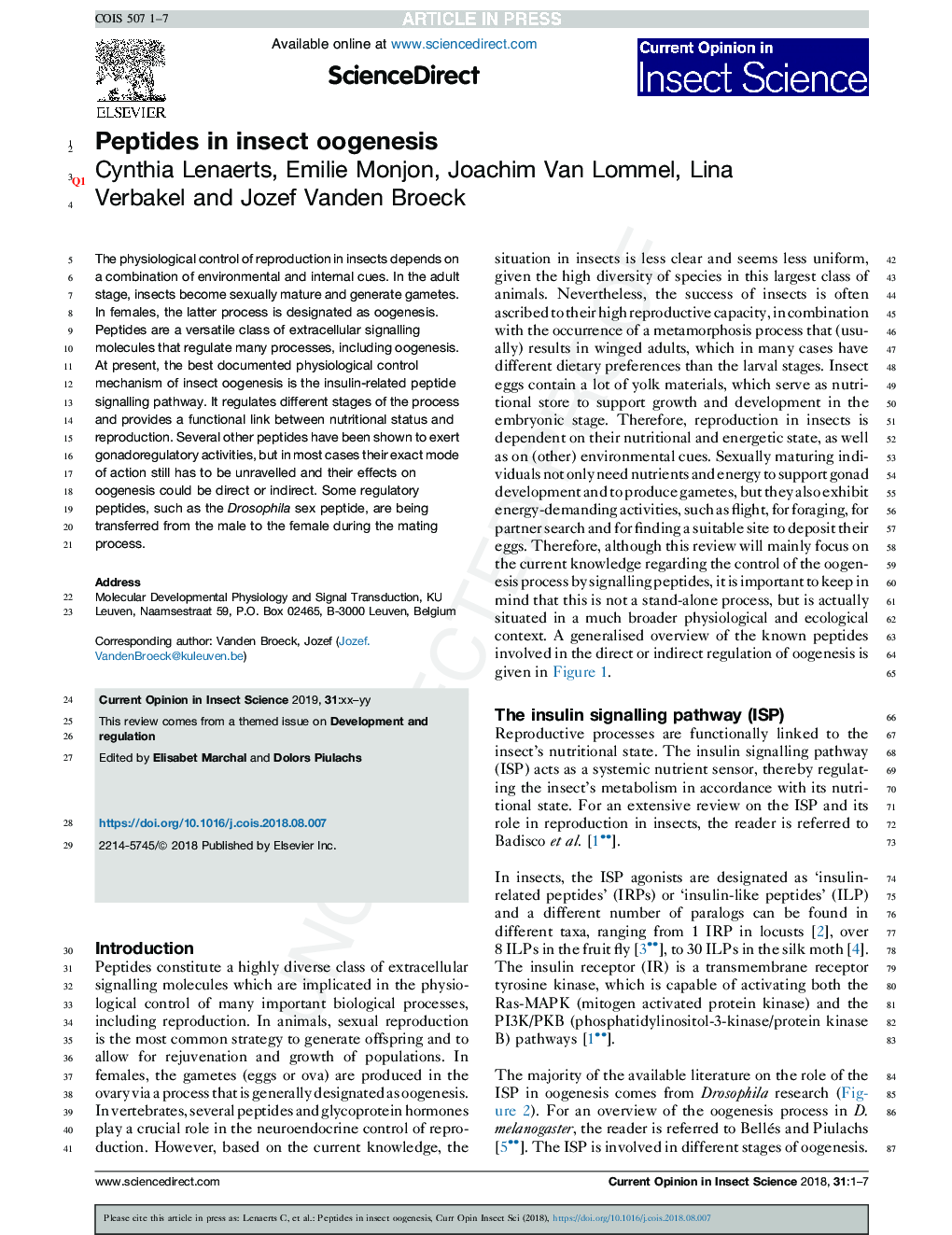| Article ID | Journal | Published Year | Pages | File Type |
|---|---|---|---|---|
| 10116591 | Current Opinion in Insect Science | 2019 | 7 Pages |
Abstract
The physiological control of reproduction in insects depends on a combination of environmental and internal cues. In the adult stage, insects become sexually mature and generate gametes. In females, the latter process is designated as oogenesis. Peptides are a versatile class of extracellular signalling molecules that regulate many processes, including oogenesis. At present, the best documented physiological control mechanism of insect oogenesis is the insulin-related peptide signalling pathway. It regulates different stages of the process and provides a functional link between nutritional status and reproduction. Several other peptides have been shown to exert gonadoregulatory activities, but in most cases their exact mode of action still has to be unravelled and their effects on oogenesis could be direct or indirect. Some regulatory peptides, such as the Drosophila sex peptide, are being transferred from the male to the female during the mating process.
Related Topics
Life Sciences
Agricultural and Biological Sciences
Agronomy and Crop Science
Authors
Cynthia Lenaerts, Emilie Monjon, Joachim Van Lommel, Lina Verbakel, Jozef Vanden Broeck,
